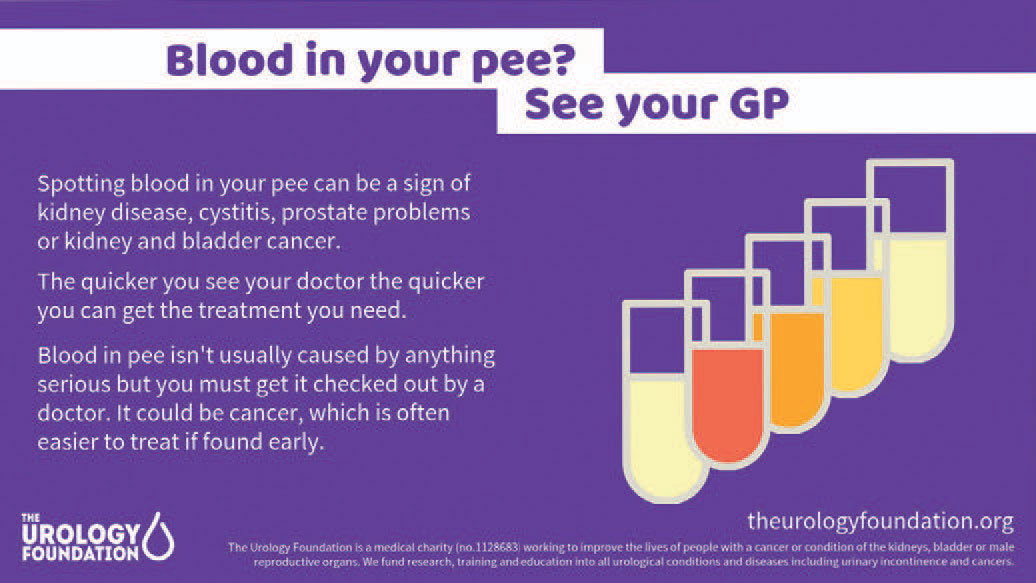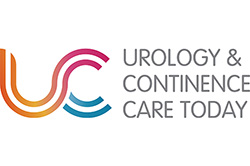.jpg) Serena Wyman, fundraising manager, The Urology Foundation
Serena Wyman, fundraising manager, The Urology FoundationThe Urology Foundation (TUF) is the only medical charity dedicated to improving the nation’s urological health across all urological conditions through the investment of cutting-edge research and the training and education of urology professionals.
We work with healthcare professionals to succeed in our mission to fight against all urology disease and our joint vision of a world where people will not die early from, or their quality of life will not be adversely affected by, urology disease.
However, as much as the medical profession can achieve, we all know that prevention is better than cure and that early diagnosis is key to long-term survival in all cancers and many other conditions. Sadly, there is a silence among members of the general public around urology conditions. TUF believes that this unnecessary taboo is literally costing lives.
While we had information about urology diseases available on our website and used our social media for public education, such as our #TUFNutsuesday campaign for testicular cancer, we were looking for something more targeted that would have a much wider reach.
Therefore, TUF organised the first Urology Awareness Month (UAM) in September 2014 with the aim of raising awareness of urological diseases and symptoms to better educate the public on what to look out for, and to break the taboo and stigma surrounding urological health. The aim was and is simple — to ensure that fewer people die from shame or ignorance.
We work with healthcare professionals to succeed in our mission to fight against all urology disease and our joint vision of a world where people will not die early from, or their quality of life will not be adversely affected by, urology disease.
However, as much as the medical profession can achieve, we all know that prevention is better than cure and that early diagnosis is key to long-term survival in all cancers and many other conditions. Sadly, there is a silence among members of the general public around urology conditions. TUF believes that this unnecessary taboo is literally costing lives.
While we had information about urology diseases available on our website and used our social media for public education, such as our #TUFNutsuesday campaign for testicular cancer, we were looking for something more targeted that would have a much wider reach.
Therefore, TUF organised the first Urology Awareness Month (UAM) in September 2014 with the aim of raising awareness of urological diseases and symptoms to better educate the public on what to look out for, and to break the taboo and stigma surrounding urological health. The aim was and is simple — to ensure that fewer people die from shame or ignorance.
Past UAM campaigns have focused on blood in pee, urinary incontinence and general information about various urological conditions, such as prostate, kidney and bladder cancers.
The campaign, and the amount of coverage it receives, has grown hugely over the last seven years but, with 50% of the population likely to suffer from a urology condition in their lifetime, it remains imperative to spread the word.
The campaign, and the amount of coverage it receives, has grown hugely over the last seven years but, with 50% of the population likely to suffer from a urology condition in their lifetime, it remains imperative to spread the word.
KEY MESSAGES
This year, the campaign’s key messages can be grouped as follows.General public
- Do not put your health at risk through ignorance or embarrassment
- It is important to check regularly for signs of urological disease or cancer, as early diagnosis means better outcomes
- Signs to look out for include lumps and bumps, painful and uncomfortable swellings, aches in the groin or lower back, blood in pee
- Early diagnosis can increase survival by up to 90%
- Common urological conditions, such as frequent urinary tract infections (UTIs) or urinary incontinence, can have a negative impact on quality of life and mental health. It is important not to suffer in silence and to seek help as soon as possible. There are treatments out there
- After childbirth for women, and the age of 30 for men, it becomes all the more important to pay attention to your general and urological health.
Patients
- Staying proactive towards your health can reduce the impact of a urological condition
- Seeking help earlier means that conditions such as urinary incontinence are likely to be more manageable and may be contained before they become worse
- Diagnosis of a urological condition is nothing to be afraid of or embarrassed about
- Help is at hand to make living with a urological condition easier
- Urological cancers, caught early, have a very good chance of cure
- Staying physically active and within a healthy weight range can help to prevent or mitigate any symptoms.
Carers
- Look out for signs of UTIs, which if left untreated can cause serious health problems such as kidney damage
- Ensure patients have enough to drink and stay hydrated — dehydration can irritate the bladder and kidneys and worsen conditions such as incontinence
- Blood in pee is a cardinal symptom — if you spot blood in your patient’s pee, contact the GP as soon as possible.
GPs
- Encourage patients to become champions of the urology health campaign
- Encourage colleagues to become advocates of the urology health campaign
- Patients who find blood in their pee may come to you agitated and your ability to ease their fear is vital
- You can obtain leaflets and information about urology health for your patients or practice from www.theurologyfoundation.org.
.jpg)


While we promote UAM via relevant journals such as JCN, social media and our supporters, it is the partnerships with healthcare professionals such as yourself that are the most effective. So, please help spread the word about urology conditions this UAM by talking to patients about their urological health. Urology conditions cover such a wide range from life-threatening cancers through to conditions that blight people’s lives, such as incontinence.
TUF offers a wide range of materials, that can be downloaded from our website (www.theurologyfoundation.org/get-involved/urology-awareness-month/urology-information-leaflets), that can help you kickstart a conversation, or give patients more detailed information. These include:
At TUF we work throughout the year to raise awareness of urological diseases, and to seek treatments for them, but UAM gives an additional opportunity to promote the message of openness, prevention, the signs and symptoms and when to seek medical advice. So, this September, let’s all please get everyone talking about their urology health.
TUF offers a wide range of materials, that can be downloaded from our website (www.theurologyfoundation.org/get-involved/urology-awareness-month/urology-information-leaflets), that can help you kickstart a conversation, or give patients more detailed information. These include:
- Urology health leaflets covering prostate cancer, bladder cancer, kidney cancer, testicular cancer, erectile dysfunction (ED), benign prostatic hyperplasia (BPH) and urinary incontinence
- Urology health information posters on checking for testicular cancer, blood in pee, prostate cancer risk, incontinence conversations, bladder health information, prostate health information, kidney health information, and UTI information
- Slides suitable for use in GP and clinic waiting rooms on subjects such as checking for testicular cancer, blood in pee, leaky bladder and prostate cancer risks.
At TUF we work throughout the year to raise awareness of urological diseases, and to seek treatments for them, but UAM gives an additional opportunity to promote the message of openness, prevention, the signs and symptoms and when to seek medical advice. So, this September, let’s all please get everyone talking about their urology health.
FOR MORE INFORMATION
To find out more, visit: www.theurologyfoundation.org or contact us at: info@theurologyfoundation.orgThis piece was first published in the Journal of Community Nursing. To cite this article use: Wyman S (2021) Welcome to Urology Awareness Month 2021. J Community Nurs 35(4): 24-25


